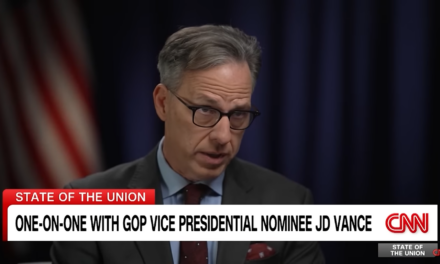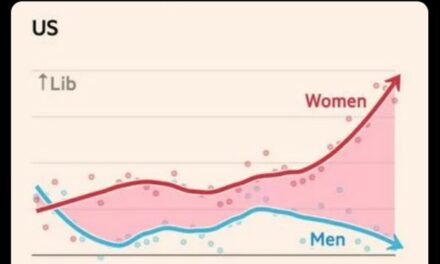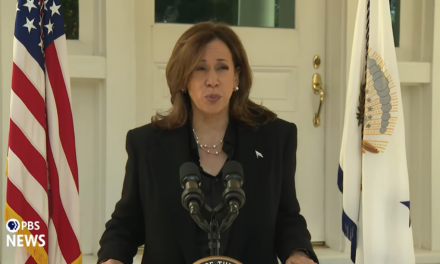We support our Publishers and Content Creators. You can view this story on their website by CLICKING HERE.
Courts in Michigan and North Carolina on Monday rejected separate lawsuits from the Republican National Committee that sought to ensure only individuals who have actually stepped foot in the states can participate in elections there.
The lawsuits, both brought in part by the RNC, took “issue with how the states apply the Uniformed and Overseas Citizens Absentee Voting Act (UOCAVA), which requires states to allow certain overseas citizens … to register and vote absentee,” as The Federalist previously reported. The lawsuits alleged that election officials in the states are violating their respective constitutions by opening the door for individuals who have never resided in these states to vote there.
In the Michigan case, plaintiffs, including the RNC and the state GOP, specifically challenged what they alleged to be “unlawful instruction” from Secretary of State Jocelyn Benson’s Election Officials Manual which says that “a United States citizen who has never resided in the United States but who has a parent, legal guardian, or spouse who was last domiciled in Michigan” to vote in the state “as long as the citizen has not registered or voted in another state.”
In her ruling on this case, Michigan Court of Claims Judge Sima Patel essentially argued that plaintiffs filed the suit too late. Patel sided with, as she referred to them, the already “busy” election official defendants, suggesting they should not be expected to “create an entirely new process” to separate ballots “issued to members of the subject group who have
never resided in Michigan and remove them before tabulation” in the upcoming election.
Patel also ruled that the “challenged language” in Benson’s guidance is “consistent with federal and state law, and the Michigan Constitution,” despite plaintiffs’ claim that Article 2 Section 1 of the “Michigan Constitution allows Michigan residents—and only Michigan residents—to vote.”
The story is similar in North Carolina, where Superior Court Judge John Smith denied a request for an injunction of North Carolina’s Uniform Military and Overseas Voters Act (UMOVA), which plaintiffs, once again including the RNC and the state GOP, argued is being used to allow those who have never lived in North Carolina (or who may have never lived in the U.S.) to participate in the state’s elections.
In his opinion, Smith appeared to rule in favor of maintaining the “status quo,” despite the lawsuit’s effort to ensure that only North Carolinians who have actually lived in the state can cast ballots there.
“That statute has been on the books at least since 2011 as a bill adopted with bi-partisan support … and has not been challenged until the filing of this complaint and motion,” Smith wrote. “Both the Plaintiffs and the Defendants have been involved in elections under the existing statute since its passage without complaint.”
“Plaintiffs have failed to show that the issuance of a preliminary injunction is necessary to maintain a status quo during this litigation since the effect of the relief sought by way of a mandatory injunction would in fact change the status quo which has been in place since at least 2011,” the judge added.
The decisions from the judges appear reminiscent of litigation surrounding the 2020 election, where courts repeatedly stonewalled challenges brought by Donald Trump and other Republicans. At least one challenge brought before the election that year was dismissed under the pretense that no harm had been done because the election had not yet been completed. Other challenges brought after the election were then essentially ruled as moot or dismissed due to technicalities.
The majority of UOCAVA voters are reportedly non-military and “have become very favorable for Democrats,” according to CNN. Early absentee ballots cast in North Carolina included 12,333 overseas ballots and 3,265 military ballots, according to data from the North Carolina State Board of Elections published Wednesday.
In August, the DNC announced a “six-figure investment” to help “fund … efforts to win the votes” of millions of Americans “living or serving outside of the United States.” The overseas vote could potentially make the difference in swing states this November amid an already tight race.
Concerns have also been raised regarding the overall security of overseas voting. Another UOCAVA lawsuit brought by Republican lawmakers in Pennsylvania argues that either Secretary of State Al Schmidt or Deputy Secretary for Elections Johnathan Marks (or both of them) have issued guidance “to exempt UOCAVA applicants entirely from any verification requirements.”
For more election news and updates, visit electionbriefing.com.
Breccan F. Thies is an elections correspondent for The Federalist. He previously covered education and culture issues for the Washington Examiner and Breitbart News. He holds a degree from the University of Virginia and is a 2022 Claremont Institute Publius Fellow. You can follow him on X: @BreccanFThies.

 Conservative
Conservative  Search
Search Trending
Trending Current News
Current News 





